Careers
Careers In Electricity
As the electric industry continues to evolve with new ways to generate and deliver electricity, educated workers in the field and in the office are vital to growth.
While some jobs may be open to high school graduates and those with technical or two-year degrees, others require four-year and post-graduate degrees. Below are some of the careers available in the industry.
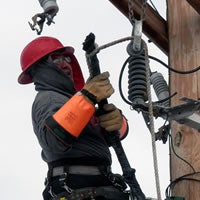 Lineworkers: Without lineworkers, we wouldn’t be able to keep the lights on. Lineworkers build and repair power lines, as well as install transformers, transmission towers, poles, insulators and other critical components of the electrical grid.
Lineworkers: Without lineworkers, we wouldn’t be able to keep the lights on. Lineworkers build and repair power lines, as well as install transformers, transmission towers, poles, insulators and other critical components of the electrical grid.
Mechanics: Without mechanics, bucket and digger trucks would fall into disrepair, not to mention the rest of an electric utility’s fleet.
Customer Service Representatives, Cashiers, Clerks: These individuals are the “front-line ambassadors” of an electric utility. They deal directly with customers. They handle requests for service and help answer customers’ questions. They are responsible for collecting and processing payments, keeping records and generating bills.
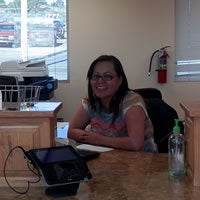 Member Service Representatives: The role of these individuals may vary greatly from co-op to co-op. Some may handle the utility’s advertising, marketing and public relations. Others may be responsible for selling secondary products and services, such as electric water heaters and energy-efficient heating equipment, propane, internet and satellite TV.
Member Service Representatives: The role of these individuals may vary greatly from co-op to co-op. Some may handle the utility’s advertising, marketing and public relations. Others may be responsible for selling secondary products and services, such as electric water heaters and energy-efficient heating equipment, propane, internet and satellite TV.
Administrative Assistants: Every business needs someone to handle human resources, hiring and assisting the general manager, CEO or governing board with monthly and annual meetings and with day-to-day tasks.
Accountants: These individuals are accountable for monitoring the money that comes in and out of an electric utility and for preparing annual budgets and long-term financial forecasts. They are the financial gatekeepers of a business.
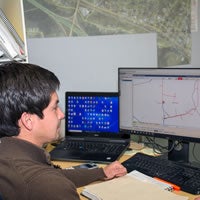 Engineers: These individuals design power plants and substations and troubleshoot potential or existing problems to the delivery system. They also analyze and help correct consumer load problems.
Engineers: These individuals design power plants and substations and troubleshoot potential or existing problems to the delivery system. They also analyze and help correct consumer load problems.
Computer Technology (Programmers, Information Technology Specialists, Geographic Information System Specialists, Fiber-Optics Technicians, Network Engineers): The field of computer technology has rapidly grown in the electric industry. Keeping the lights on requires utilities, including Continental Divide, to integrate sophisticated communication equipment, such as fiber-optic cables to carry signals and data across an electrical grid. The resulting high-speed broadband network enables utilities to monitor their distribution systems remotely and gather data in real-time for more rapid, accurate analysis and response. The technology also provides an opportunity for utilities to make internet service available to its members or customers, creating the need for fiber-optic technicians and network engineers. 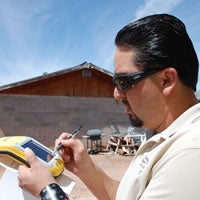 Others in computer-related roles, such as information technology specialists, are responsible for keeping a utility’s computers and databases functioning, properly. They also can be called upon to generate reports to analyze trends in demographics, land-use and the overall consumer base. Geographic information system specialists specialize in digitizing maps of the power distribution system, making it easier for field workers to identify job locations.
Others in computer-related roles, such as information technology specialists, are responsible for keeping a utility’s computers and databases functioning, properly. They also can be called upon to generate reports to analyze trends in demographics, land-use and the overall consumer base. Geographic information system specialists specialize in digitizing maps of the power distribution system, making it easier for field workers to identify job locations.
General Managers and Chief Executive Officers: A GM or CEO is responsible for the overall day-to-day operations of an electric utility. If the company is publicly traded or is a non-profit co-op, the manager may be hired and held accountable by a governing board of directors or trustees. If the company is operated by a municipality, the general manager may report to a government entity, such as a city council.
Operations Supervisors: These individuals may be responsible for lineworkers, including their safety training and continuing education. Operations supervisors also oversee emergency situations, such as power outages, and may be part of a larger regional group that plans for terrorist threats, environmental disasters or other catastrophic events.
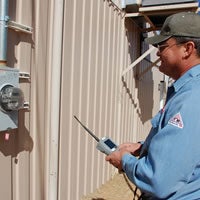 Meter Readers, Meter Techs: Utility customers can't be billed, if monthly meter readings aren't collected. Technicians, meanwhile, program and test meters, so the equipment can be installed by meter readers.
Meter Readers, Meter Techs: Utility customers can't be billed, if monthly meter readings aren't collected. Technicians, meanwhile, program and test meters, so the equipment can be installed by meter readers.
Surveyors, Stakers: These individuals help locate existing and new power lines and determine the proper equipment needed to deliver electricity to homes and businesses.
Office Managers: Various department heads are needed to oversee office personnel and provide them with training opportunities. They also assist consumers with questions about billing and services.
